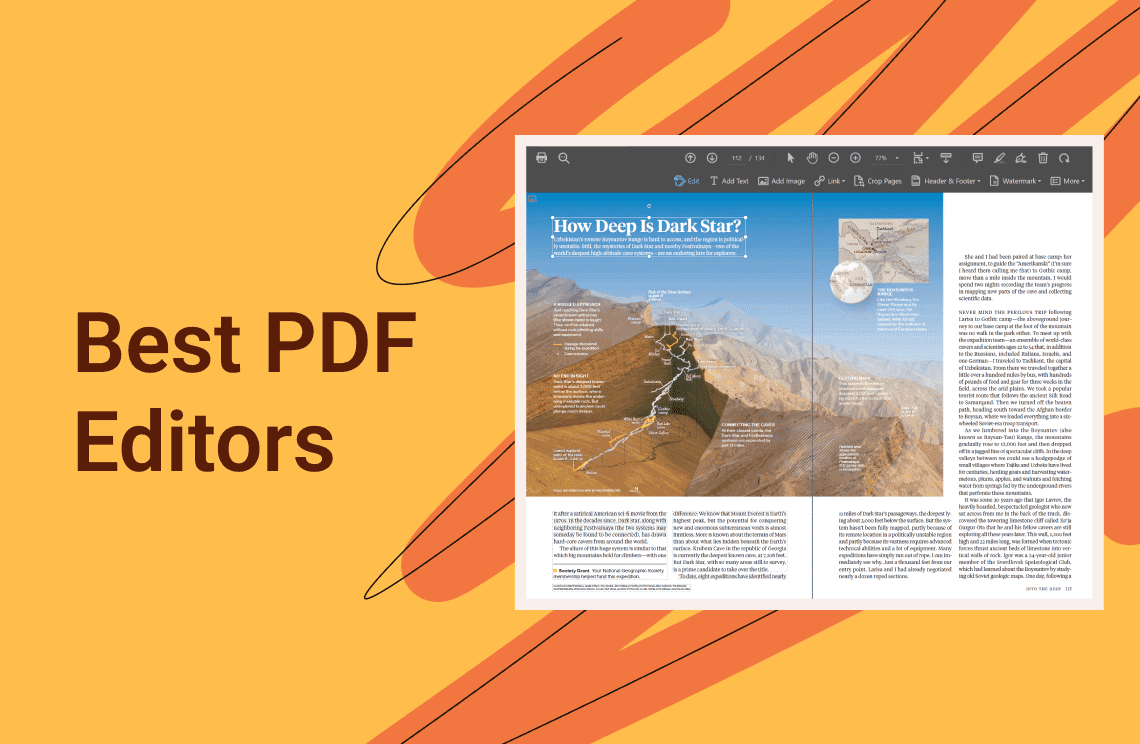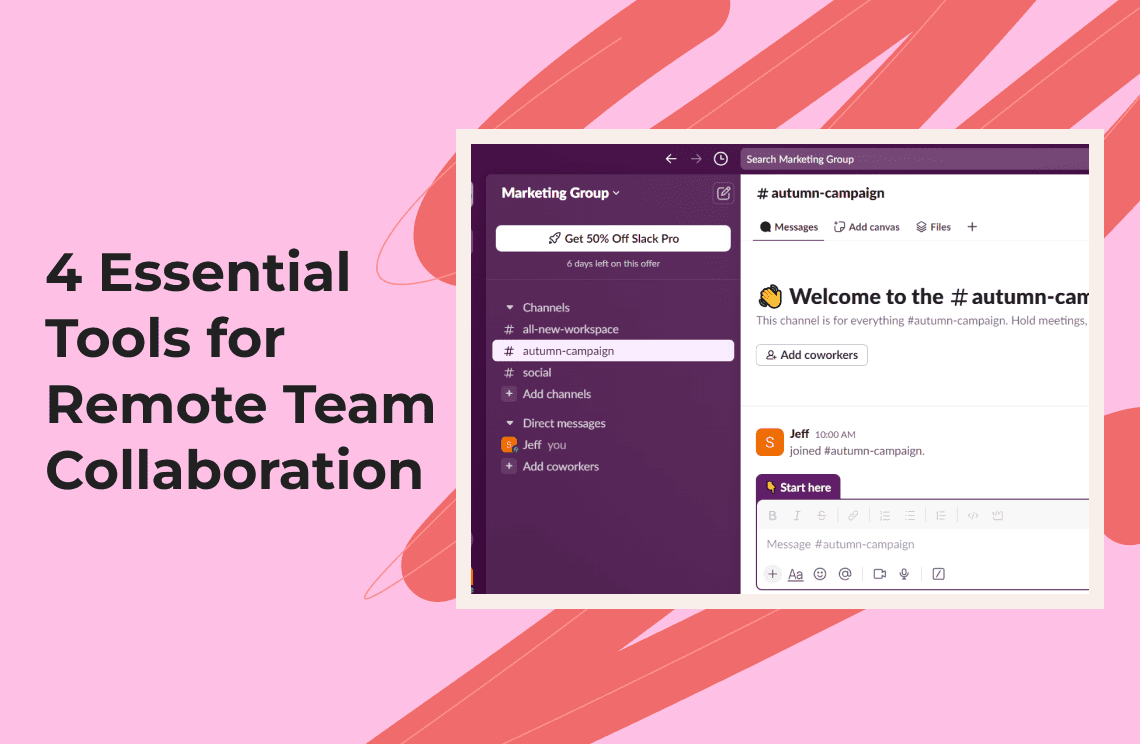Whether you’re launching a new service or product or a new marketer who wants to learn market research, market insights, and data, it is always necessary to understand what’s happening. Market exploration offers a clearer overview of current and potential customers within a specific marketplace.
While we can easily point out the essence of market research tools, the process within this topic is relatively diverse and quite challenging and time-consuming. However, with the right research tools, you can simplify and improve the accuracy of the processes. As you read along, take note of the market research platforms and look closely into their features and benefits before choosing one.
What’s the Benefit of Using Market Exploration Tools?
Market research firms use market exploration tools to gain hands-on insights into various aspects, such as potential new customers, core audience, competitive threats, possible missing customer needs, and new opportunities. These tools can also help with various business goals, including target audience profiling, new product improvements, and marketing strategy. As marketers leverage these tools, they’ll have real-time data analytics that are useful in making strategic decisions.
Using the tools will help business organizations to make very strategic business decisions that perfectly align with customers’ preferences and market demands, enabling the business organizations to build long-term relationships and be more successful.
Top 5 Powerful Tools for Market Exploration
Some might ask, ‘Can you just pick a market research tool online and work with it?’ The best answer would be no. Besides the investment that you must put into buying these tools, you must assess whether the specific software can address your business and marketing goals.
1. Attest
This market exploration software makes industry analysis by conducting spot trends, regular surveys, and working towards identifying market changes instead of merely following them. Predicting these changes helps companies stay ahead of competitors and develop strategic decisions. Attest’s market research tool makes processes more robust against significant changes, ensuring you remain adaptable and agile in a constantly evolving business landscape.
Key features
- Dedicated research manager
- Access to millions of possible respondents from around the globe
- Automated business process testing
- User-friendly platform
- Flexible data pool building options
Drawbacks
- No free trial available
- The cost can be expensive for small businesses
Pricing
- $0.50 per response

2. SurveySensum
With its affordable rates, SurveySensum is popular among marketers and businesses. This software helps you determine and understand your customer base. You can send CES, NPS, CSAT, onboarding, product, and various VOC surveys to your target customers. Market research consulting firms can maximize the tools of SurveySensum to provide insights into their customer base across several industries, such as Telecom, B2B, and Fintech.
SurveySensum is ideal for beginners and seasoned marketers. Users can analyze real-time information, identify customers’ needs, and collect comprehensive insights from journey-based dashboards. The tool can boost sales conversion by 20% and can increase NPS points by 15%. Studies also show it can increase response rate by up to 25%. Consequently, the tool works perfectly for market exploration.
Key features
- Built-in templates
- Customized dashboards
- Hands-on customer service consultation
- Text analytics software
- Seamless integration
Drawbacks
- Absence of some app integrations
Pricing
- Starts at $99/month

3. SurveyMonkey
Market research services providers also use another popular tool, SurveyMonkey. This software offers users several alternative methods of expressing ideas and new methods when doing market research. With SurveyMonkey, you’re creating an in-depth marketing survey to learn more about the needs and opinions of consumers.
When you explore the software’s platform, you’ll see a dashboard that lets you search through various survey results for particular keywords.
Key features
- Availability of surveys, polls, quizzes, web links, and embedded forms
- Pre-built survey templates
- Custom surveys like skip logic and branching
- AI-operated analytical tool
- Offers free and paid versions
Drawbacks
- Users might experience glitches when designing surveys
- Data analytical dashboard requires more improvements
Pricing
- $25/month

4. Google Trends
This famous tool is best for exploring how online activities reflect social and behavioral trends. A standout feature of Google Trends is its pleasing user interface, which visually illustrates trends based on ‘searched-for-terms.’ As the name suggests, this tool uses social media platforms and the Google search engine for significant trends and mentions of specific terms.
It’s a free market exploration tool that displays information from all over the internet. As you input a word in Google Trends, you’ll receive a specific score out of 100. Furthermore, there will be a clear depiction of how the term has been trending over time.
Key features
- Location filters to narrow down the search
- Related topics and related queries are available
- Offers comparative keyword research
- Utilizes a line graph to show trends
- Excellent method for gathering keyword-related and geographic data
Drawbacks
- Some irrelevant words might appear during a keyword search
- Steeper learning curve for beginners
Pricing
- Free

5. Typeform
If you’re about to conduct a primary research survey, Typeform must be one of your go-to platforms. It’s a user-friendly tool that allows you to develop interactive online surveys and forms for your target audience. Some marketers prefer Typeform because of its distinct conversation survey design. It will only show a single question at a time, so respondents won’t get intimidated after seeing long lists of questions.
Typeform is ideal for companies with a broader customer base that want to conduct online product or user satisfaction surveys.
Key features
- Integration with other tools like Slack, Google Sheets, Salesforce, etc.
- Drag-and-drop feature lets users design forms in minutes
- Offers various question formats like multiple choice, free-form text, opinion scale, and rating
- Collects consumer demographic data to understand behavior patterns
- Provides a video feature for more in-depth questions
Drawbacks
- Limited flexibility and customization in designing surveys
- Higher plans can be expensive for some businesses
Pricing
- $25/month to $83/mo

Comparison: Top 5 Market Exploration Tools
Inspect each element in the table below and assess which of the five research platforms is ideal for you. As you know, choosing the right software can be daunting, so the following points will help you make informed decisions.
Marketing Exploration Tool | Key features | Useful for | Cost |
|
| Starts at $0.50 per response | |
|
| Starts at $99/month
| |
|
| $25/month
| |
|
| Free | |
|
| $25/month to $83/mo |
Features to look into when choosing market exploration tools
Real-time data access. This feature lets researchers interact with various insights so they can instantly inspect findings when necessary. As a result, it will be easier to make real-time decisions or track the project's progress.
AI features. While most still prefer traditional inputs, the Artificial Intelligence feature on your market research software allows you to do more. You can generate questions or chart descriptions and titles in seconds. In short, AI keeps the process much faster.
Advanced methods. Segmentation, TURF analysis, and conjoint analysis are some of the advanced features you should have so you can conduct more in-depth market research. While these might not apply to all users, it's still beneficial to check with your software. They might be helpful in the future.
Panel choice: You should focus on those research tools known to be panel agnostic; that is, tools that permit the end-users to select from any source of panel, even from third-party vendors.
FAQs
Q: Are market exploration tools worth the cost?
A: Yes, if you use the right software for your marketing goals and needs. As mentioned, these tools offer businesses various insights about the target audience, trends, and competition. Adopting the right tools will help minimize risks and guarantee profitability.
Q: Are free trials of these market research tools enough?
A: The free versions and free trials will suffice if you're a startup, especially if it's your first time conducting market research. Of course, you can expect the demands to change as you grow your business. In fact, you might need additional software in the long run.
Q: How would I know if the market research tool is effective?
A: After maximizing the software's features, the insights must generate a positive effect on the business project. An assessment must be conducted before you can conclude that the software is beneficial in achieving your business goals.





